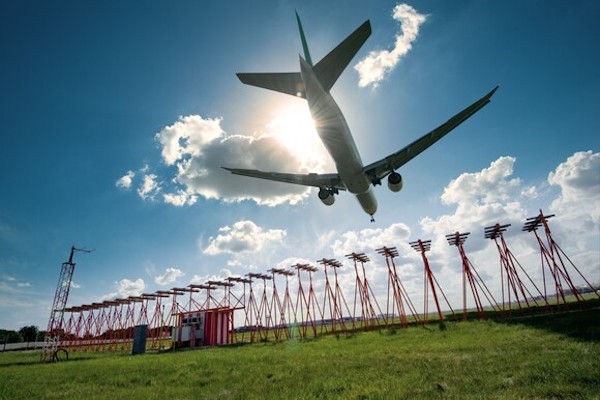The UK Government has announced a groundbreaking airspace modernisation plan aimed at reducing flight delays and emissions, a move expected to benefit millions of passengers annually.
This initiative promises to overhaul how airspace is utilised, starting with a consultation to establish the UK Airspace Design Service.
The Need for Modernisation
The necessity for airspace modernisation in the UK is clear, with systems largely unchanged since the 1950s. This outdated structure struggles to accommodate the current volume of flights, leading to significant delays, particularly in the congested London airspace.
Modern navigation technologies are essential to enhance efficiency and minimise these delays. The Department for Transport (DfT) is spearheading a consultation on forming a UK Airspace Design Service to bring these changes to fruition, focusing initially on London and the Southeast.
Innovations in Airspace Design
The proposed UK Airspace Design Service aims to revolutionise how we navigate the skies. By incorporating advanced navigation systems, it will streamline routes and reduce the necessity for holding patterns, which are prevalent at busy airports.
This initiative will tackle inefficiencies, thus potentially reducing fuel consumption, emissions, and flight times. Aviation Minister Mike Kane emphasises that this is a ‘once-in-a-generation’ opportunity to drive substantial improvements in UK air travel.
Challenges and Implications for the Industry
Challenges remain, particularly in handling increased air traffic efficiently. The complex airspace over London is notorious for delays that ripple across the country.
For airlines, inefficient airspace usage has led to increased fuel consumption and emissions, exemplified by EasyJet’s report showing a 10.6% rise in CO2 emissions due to these inefficiencies.
The UK’s air traffic control, managed by NATS, faces scrutiny for its performance, notably during the busy August bank holiday when operations faltered, highlighting the urgent need for modernisation.
Environmental and Economic Benefits
Airspace modernisation not only promises operational efficiencies but also significant environmental benefits. Reduced time in the air will lead to lower emissions, aligning with governmental goals for a greener industry.
Increased use of sustainable aviation fuel (SAF) and improved flight paths further support these objectives, marking a step towards net-zero emissions within the aviation sector.
According to Rob Bishton, Chief Executive of the Civil Aviation Authority, these modernisation efforts are crucial for a sustainable and resilient aviation system that benefits all stakeholders, including passengers and airlines.
Industry Support and Collaboration
There is robust industry support for the modernisation initiative. Airlines UK Chief Executive Tim Alderslade underscores the critical nature of airspace reform in enhancing resilience and reducing delays, a sentiment echoed across the sector.
Cooperation among aviation stakeholders, including airlines, airports, and regulatory bodies, is vital to the successful implementation of the UK Airspace Design Service. Such collaboration ensures that the system is optimised to meet the industry’s evolving needs.
Karen Dee, Chief Executive of Airports UK, acknowledges the strategic importance of coordinating airspace design, especially in complex zones like London, to keep pace with international aviation standards.
Future Outlook
The future of UK air travel hinges on the successful implementation of these modernisation plans. The industry is urged to support this transformative project, projected for completion by the end of the decade.
As the UK aims to be at the forefront of aviation technology, this initiative sends a clear signal to global markets regarding its commitment to efficient and sustainable air travel.
By modernising its airspace, the UK not only enhances travel efficiency and passenger experience but also strengthens its position as a leader in cutting-edge aviation practices.
Conclusion
The UK government’s airspace modernisation plan marks a significant step forward in reducing flight delays and emissions.
This comprehensive strategy seeks to enhance the travel experience while contributing to environmental sustainability, underscoring the UK’s commitment to innovation in aviation.
By embracing advanced technology and collaborative efforts, the UK is poised to transform its airspace management, benefiting passengers, airlines, and the environment.
Modernisation is not just an operational necessity but a strategic move towards a sustainable future in air travel.

